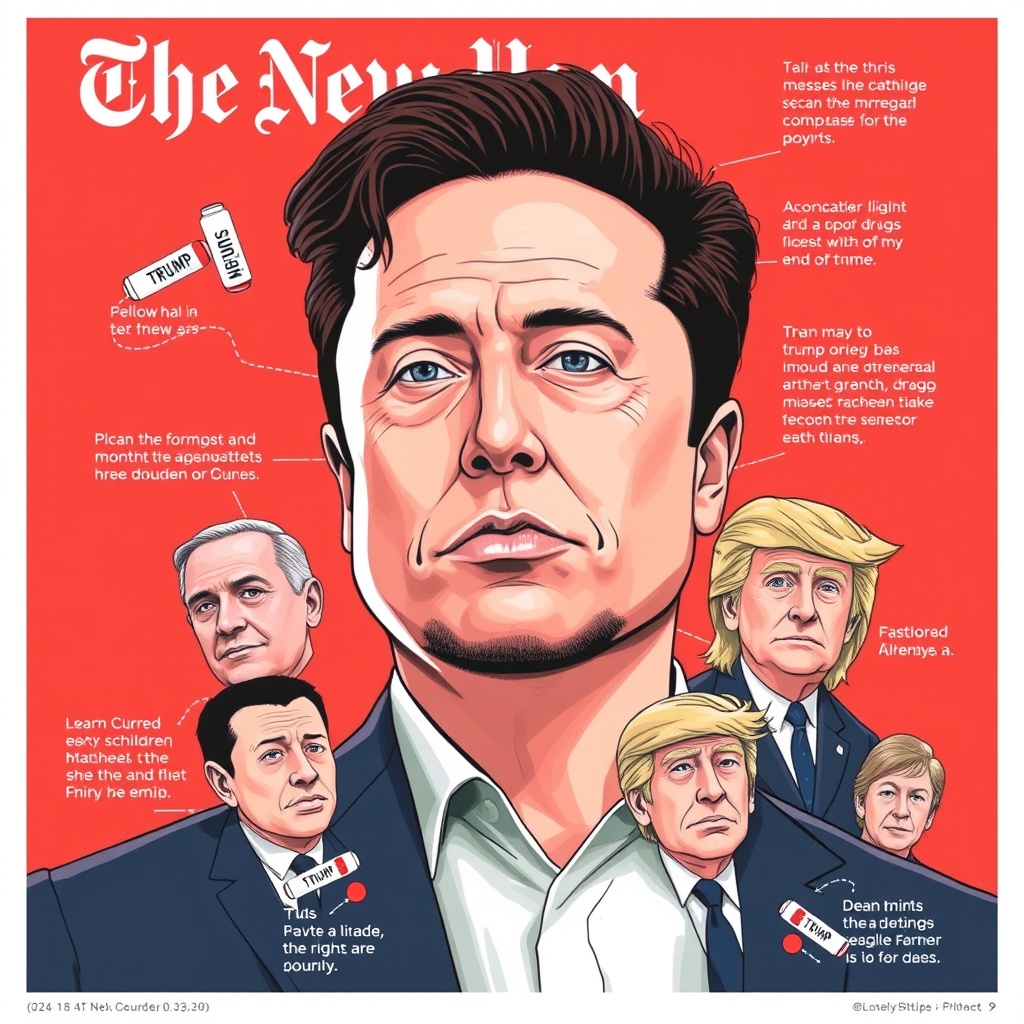Introduction
The life of Elon Musk, the billionaire entrepreneur and CEO of SpaceX and Tesla, has always been a subject of fascination and intrigue. With his innovative ideas and ambitious goals, Musk has become a household name, known for his relentless pursuit of revolutionizing the tech industry. However, recent reports have shed light on a more personal and tumultuous side of Musk's life, particularly during his involvement with Donald Trump's presidential campaign. As revealed in a recent New York Times article, Musk's life was marked by a mix of drug use, family drama, and high-stakes politics as he navigated his role as one of Trump's closest allies. In this article, we will delve into the details of Musk's experiences on the campaign trail, exploring the complexities of his relationships, the challenges he faced, and the implications of his actions.
The Campaign Trail: A High-Pressure Environment
As one of Trump's most prominent supporters, Musk found himself at the center of a maelstrom of activity, traveling from city to city, and speaking at rallies in front of thousands of people. The pressure to perform and deliver results was intense, with Musk reportedly donating around $275 million to help Trump win the election. This level of involvement would be overwhelming for anyone, but for Musk, it was particularly challenging due to his own personal struggles. Sources close to the entrepreneur revealed that he was using drugs to cope with the stress and anxiety of the campaign trail, a habit that would ultimately take a toll on his relationships and overall well-being.
The use of drugs by high-profile individuals is not uncommon, particularly in high-pressure environments like politics. However, Musk's situation was unique due to his position as a role model and his influence on the tech industry. As someone who has built his reputation on innovation and forward-thinking, Musk's actions on the campaign trail raised questions about the consequences of his behavior and the potential impact on his businesses and personal life. For instance, a study by the National Institute on Drug Abuse found that substance abuse can lead to impaired cognitive function, decreased productivity, and increased risk of accidents and injuries. In Musk's case, the stakes were even higher, given his responsibilities as a CEO and his role in shaping the future of transportation and energy.
Family Drama and Personal Struggles
As Musk navigated the challenges of the campaign trail, he was also dealing with personal struggles, including a complicated family situation. With multiple children from previous relationships, Musk's family life was already complex, but the added pressure of the campaign trail took a significant toll. Sources revealed that Musk's relationships with his children were strained, with some of them expressing concerns about his behavior and the impact of his actions on their lives. The situation was further complicated by Musk's history of Twitter outbursts and controversies, which often made headlines and sparked heated debates.
The intersection of family drama and personal struggles is a common theme in the lives of high-profile individuals, particularly those in the public eye. For Musk, the challenges of balancing his personal life with his professional responsibilities were exacerbated by the intense scrutiny he faced as a public figure. A study by the American Psychological Association found that individuals who experience high levels of stress and anxiety are more likely to engage in substance abuse, which can further exacerbate personal and professional problems. In Musk's case, the combination of drug use, family drama, and high-stakes politics created a perfect storm of challenges that threatened to derail his life and career.
Implications and Consequences
The revelations about Musk's behavior on the campaign trail have significant implications for his businesses, his relationships, and his reputation. As a CEO and a public figure, Musk is held to a high standard, and his actions are closely scrutinized by the media, investors, and the general public. The use of drugs and the strain on his family relationships raise questions about Musk's judgment and his ability to lead his companies effectively. Furthermore, the association with Trump's campaign and the donation of $275 million to support his election bid have sparked controversy and criticism, with some accusing Musk of prioritizing politics over his business responsibilities.
The consequences of Musk's actions are far-reaching, with potential impacts on his companies, his employees, and the wider tech industry. As a leader and a role model, Musk's behavior sets a tone for his organizations, influencing the culture and values of his companies. A study by the Harvard Business Review found that leaders who prioritize their personal well-being and maintain a healthy work-life balance are more likely to build trust and inspire loyalty among their employees. In contrast, leaders who struggle with personal issues or engage in questionable behavior can create a toxic work environment and undermine the credibility of their organizations.
Conclusion
The story of Elon Musk's experiences on the campaign trail is a complex and multifaceted one, marked by a mix of personal struggles, family drama, and high-stakes politics. As a public figure and a leader in the tech industry, Musk's actions have significant implications for his businesses, his relationships, and his reputation. While it is impossible to know the full extent of Musk's struggles and challenges, it is clear that his involvement with Trump's campaign and his use of drugs have raised important questions about his judgment and his ability to lead. As the tech industry continues to evolve and grow, it is essential to consider the human side of leadership, recognizing the challenges and complexities that leaders like Musk face, and the importance of prioritizing personal well-being and maintaining a healthy work-life balance. Ultimately, the story of Elon Musk serves as a reminder that even the most successful and influential individuals can struggle with personal demons, and that true leadership requires a deep understanding of oneself and one's own limitations.


Leave a comment